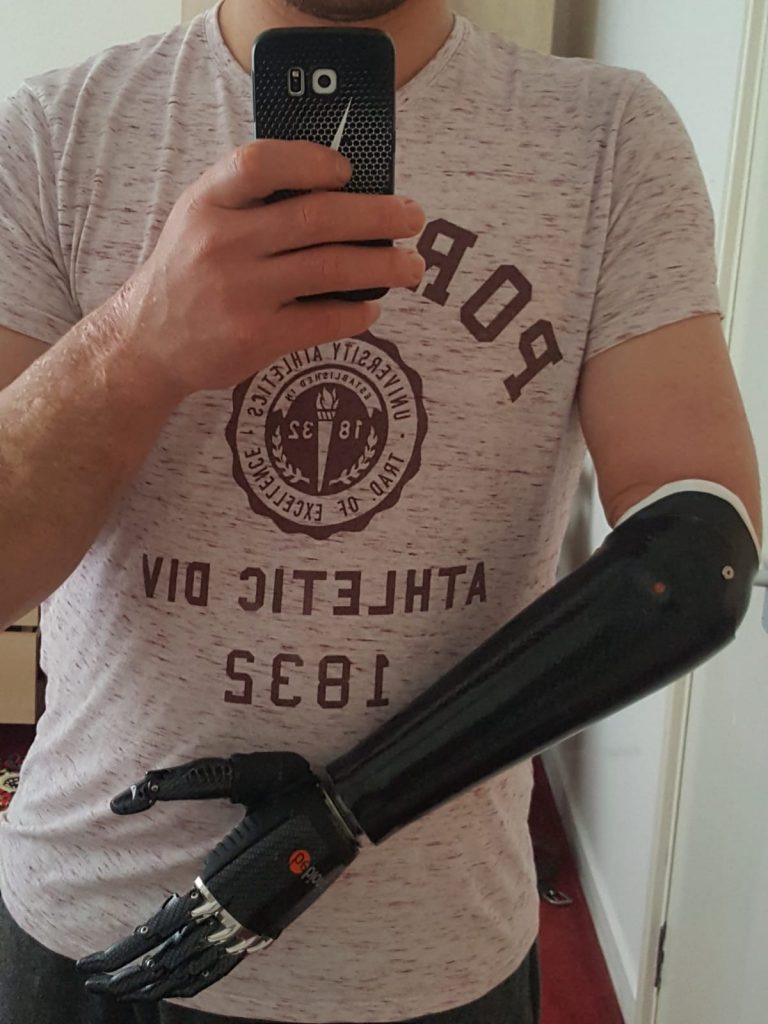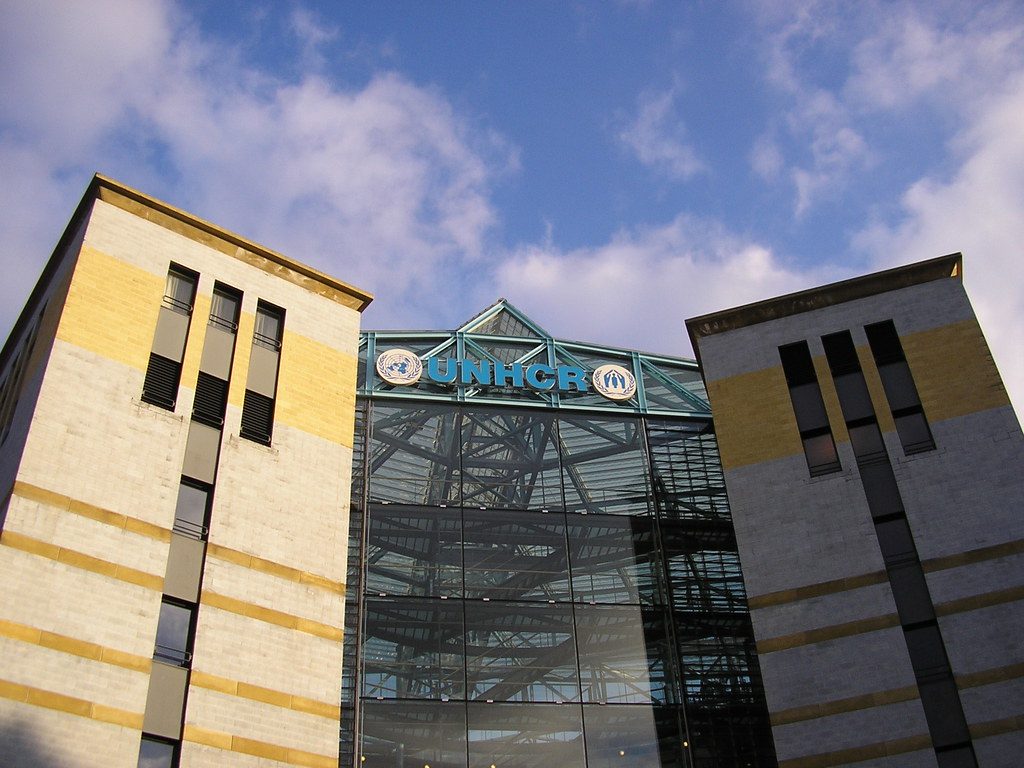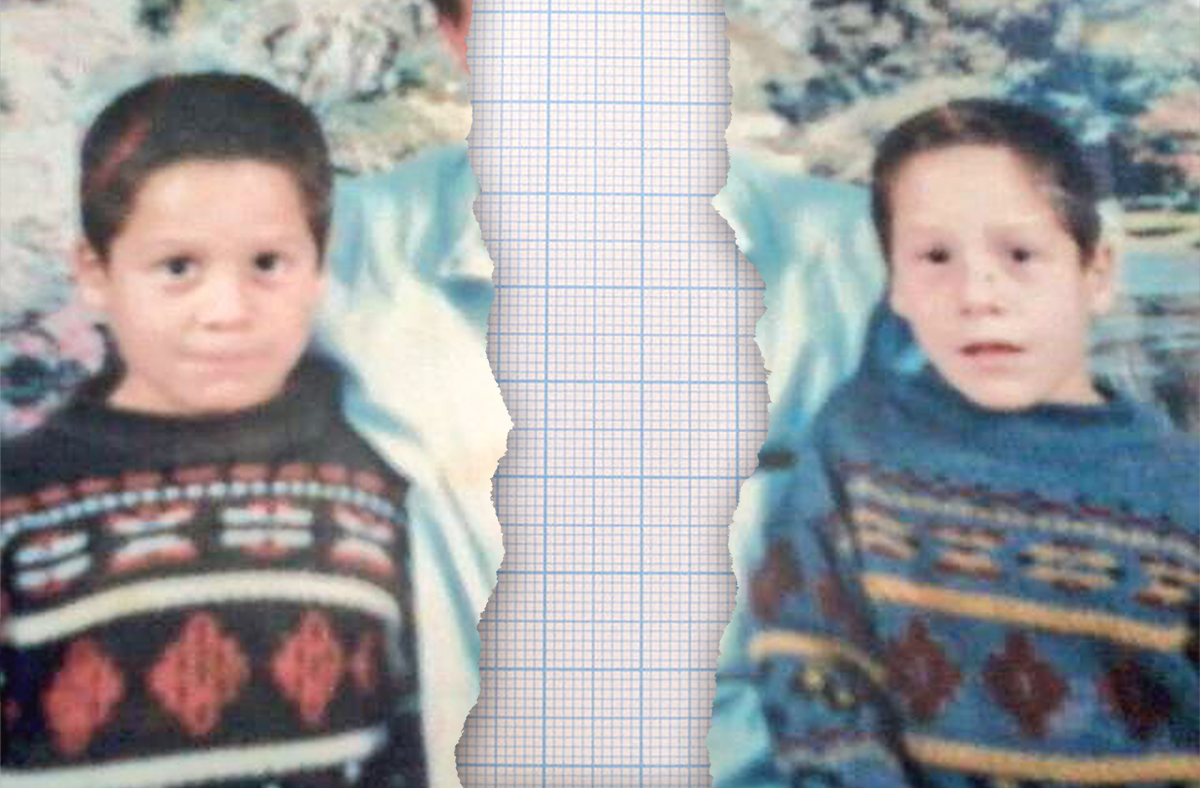Syrian refugee Mahmoud was resettled in Scotland five years ago after a losing his arm in a midnight bomb blast which destroyed his family home.
While his twin brother Mohammed – who suffers ongoing health issues after being struck by a bullet in the head – lives as a refugee, or protected person as it is officially known, in south eastern Turkey.
Mohammed hoped to join his brother in the UK under the same Vulnerable Persons Resettlement Scheme but was turned down by the United Nations High Commissioner for Refugees (UNHCR) without explanation last September, he tells RightsInfo.
The 26-year-olds, who wish not to reveal their last name amid fears family still in Syria could face repercussions, find separation very difficult – one living in a North Lanarkshire suburb, the other in the southern Turkish city of Gaziantep.
I miss him too much. It is like missing part of your body.
Mohammed, 26
Though they have not seen each other for five years, Mahmoud says they continue talk to each other on the phone three or four times a day.
Speaking over a crackling Skype call, with Mahmoud translating, Mohammed says: “It feels like I have a broken heart.
“I miss him too much. It is like missing part of your body.”

Mahmoud has had to have multiple surgeries on his arm and has now been given a bionic one. Image Credit: Mahmoud.
Since arriving to the UK in 2014, Mahmoud has enrolled in a computing course and takes regular English lessons. Describing life in Scotland, Mahmoud says: “It is very nice.”
Laughing, he adds: “[It’s] better than my country at the moment. It is very nice with very good people.”
But the solitude of living alone appears to be taking its toll on him.
He says: “[In Syria], my family were around me. Here I am alone.
“I have got friends and Syrian friends.
“Sometimes it is not enough. You need your own family, the people you grew up with.”
Three of Mahmoud’s brothers are living in Turkey as well as Mohammed, four in total.
Mahmoud tells RightsInfo he is nervous about visiting them after his protected person status was removed upon resettling in the UK.
“Ideally, I would like the UNHCR to bring all my brothers here,” he said. “Three of them have injuries.”
“Sometimes I have nightmares about them.”
The Search For Answers

Image Credit: Patrick Muller/Flickr.
Since arriving in Scotland, community befriender Adam, not his real name, has helped Mahmoud to settle in – accompanying him to hospital appointments among other things.
In the quest for answers on Mohammed’s resettlement application, Adam enlisted the help of Scottish National Party MP Neil Gray and a solicitor.
They can refuse his application but he at least deserves an answer about why.
Adam
An email to Mr Gray on November 27 last year confirms that the UNHCR interviewed Mohammed for referral to the UK’s Vulnerable Persons Resettlement Scheme three times.
“Unfortunately, based on the profile and circumstance of the case, we are unable to refer [his] case to the Home Office for consideration,” it reads, a response which left Adam and Mahmoud with more questions than answers.
“Profile and circumstance’ is not an answer,” Adam says. “That could mean anything.
“They can refuse his application but he at least deserves an answer about why.”
His brother says he was notified by a woman over the telephone in September that his “file had been refused”.
When Mohammed asked her “why?” she told him it was “not her responsibility to say”, he claims.
She is said to have told him that a manager in Turkey may be able to help with money and getting him into a hospital. But Mohammed never heard back.
Over the past eight months, Mahmoud’s solicitor has sent multiple emails to the UN agency requesting details on the specific reasons for the rejection or the criteria used to come to the decision. They received no response.
However, after being approached by RightsInfo on last week, a UNHCR spokesman yesterday (June 20) said that he would facilitate another meeting between Mohammed and its Turkey office.
The UNHCR cannot discuss individual cases for confidentiality and data protection reasons, he said.
He added: “In general, [we] can confirm that resettlement decisions are explained in detail to individuals who do not qualify for resettlement, and they are offered the necessary support to help them in the aftermath of such outcomes.”
However, rather than arranging a meeting, Mohammed was today contacted by the same woman by telephone.
In a three-minute conversation, which he recorded in order for Mahmoud to translate into English, she told him: “The UN committee examined the file and found it unsuitable for resettlement.
“It is not a refugee right but it is a help.
“Unfortunately, not all refugees are accepted to travel.
“The commission decided that your file is unacceptable and we are not a court and you cannot appeal.”







